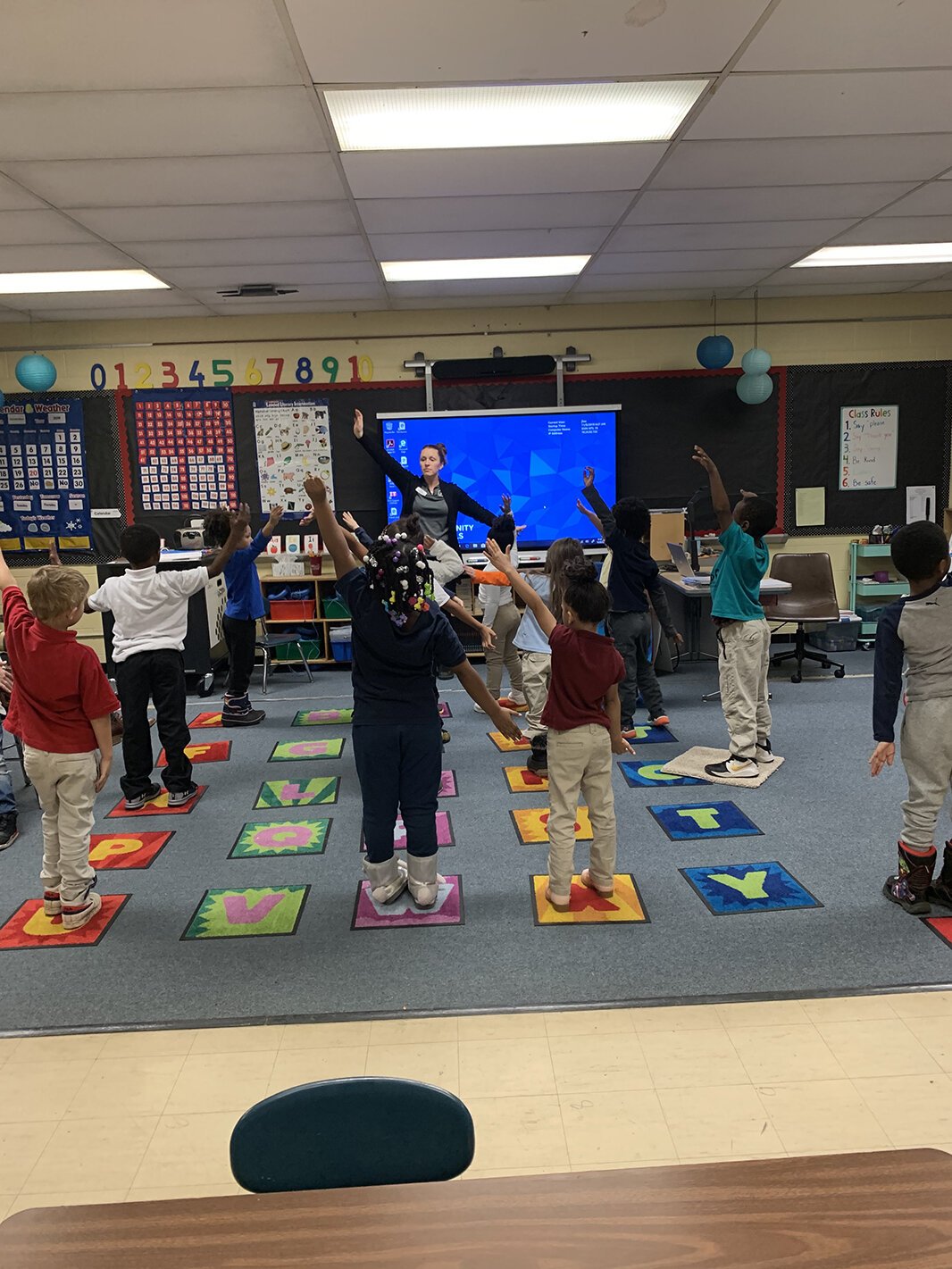Partner Partner Content CrimFit Nutrition Program brings exercise and nutrition education to thousands of Flint kids at home
As Flint kids begin online-only schooling, opportunities for physical exercise and nutrition education will be scarce. But a team of Crim Fitness Foundation staffers is working to address that by bringing the Crim’s Nutrition Program (CrimFit) out of the classroom and into families' homes.

As the COVID-19 pandemic continues and Flint kids begin online-only schooling, opportunities for physical exercise and nutrition education will be scarce. But a team of Crim Fitness Foundation (Crim) staffers is working to address that by bringing the Crim’s Nutrition Program (CrimFit) out of the classroom and into families’ homes.
The Crim is no stranger to Flint families’ needs, as it has been implementing health-oriented programming in the city’s public school system for years. With the COVID-19 pandemic preventing Crim staff from visiting children at school, their education methods have had to change.

To continue programming this year, the Crim is using funding from Supplemental Nutrition Assistance Program Education (SNAP-Ed) grants from Michigan Fitness Foundation (MFF). SNAP-Ed is an education program of the U.S. Department of Agriculture that teaches people eligible for SNAP how to live healthier lives. As a State Implementing Agency for the Michigan Department of Health and Human Services, MFF offers competitive grant funding for local and regional organizations to conduct SNAP-Ed programming throughout Michigan.
SNAP-Ed funded programs are tailored to their communities’ needs. In Flint, CrimFit focuses on limited access to healthy, affordable foods and the unhealthy eating and exercise habits that result.
Sharon Davenport, Crim program director of physical activity, sports, and nutrition, says her team’s goal is “to increase fruit and vegetable consumption and increase daily physical activity.”
To many, that may sound like an obvious step to take. But in a city where many families cannot afford to make healthy eating or physical activity a priority, introducing fruits and vegetables and scheduled exercise is easier said than done.
By working with children from kindergarten to eighth grade, CrimFit is playing the long game and introducing health-conscious habits during children’s most important developmental years.
“We are really working to introduce them to new foods that they haven’t had, new ways of using foods that they already have, and creating a healthier environment at home,” Davenport says.
Before the COVID-19 pandemic, CrimFit delivered PE-Nut (Physical Education and Nutrition Working TogetherTM) programming that included six visits to every classroom in kindergarten, second, fourth, and sixth grades, and Linking LessonsTM programming in eighth grade, in around 17 schools over the course of an academic year.

Samantha Farah, project manager for the Crim, says those visits introduce new foods to kids, as well as reintroducing known foods in new recipes in the hopes that kids will learn to like them.
“It’s also about giving them the opportunity to taste things,” Farah says. “Kids could say, ‘Oh, I hate carrots.’ Then we try to present them in a different way, and then they’re like, ‘Oh, actually, these aren’t so bad.’”
While the main focus is on kids, Davenport says success can be limited if parents and community members don’t embrace the same habits.
Like Davenport, Farah agrees that while introducing veggies and fruits to students is a good way to start, unless kids see their parents eat or cook similarly at home, their taste for healthy foods won’t stick.
CrimFit reaches families where they eat, live, learn, shop, work, and play. “I think we’ve done a really good job of really trying to involve families and the community,” Davenport says.
To make sure some of these habits make it back home, CrimFit hosts “tasting tables” where parents and kids can try foods together. From there, parents are sent home with new and healthy recipes to try.
Because of the COVID-19 pandemic, however, the CrimFit team has had to try new ways of distributing information and promoting physical activity.
Jared Badour, a program coordinator for the Crim, is one of the team members who would regularly visit schools. Over the summer, Badour and other CrimFit staff members recorded over 50 lessons on nutrition and exercise for kids to watch over the course of the school year.
As with the program’s pre-COVID-19 nutrition education lessons, Badour says CrimFit is working on taking a multifaceted approach in order to reach as many students as possible through different media.

Badour says CrimFit in collaboration with MFF is currently planning on hosting outdoor physical activity demonstrations while closely following Centers for Disease Control and Prevention guidelines.
“You can’t even be in a gym right now, so we are planning on coordinating with local parks and putting out information to neighborhoods and parents to let people know what we’re planning,” Badour says. “I’m definitely excited about that. I wouldn’t say it’s back to normal, but it’s an in-between where we can be in person but still socially distance.”
The COVID-19 pandemic has cast a shadow of uncertainty over almost every aspect of life. Even now, many parents, teachers, and children are not sure what the coming months will look like. Despite this, CrimFit and its partners have made it a priority to provide consistent and effective nutrition education and physical activity promotion to thousands of Flint families.
“When you’re well-fed, when you have the proper amount of exercise, especially for kids, they’re better learners,” Farah says. “That’s why we do it. We want to improve those overall health outcomes.”




